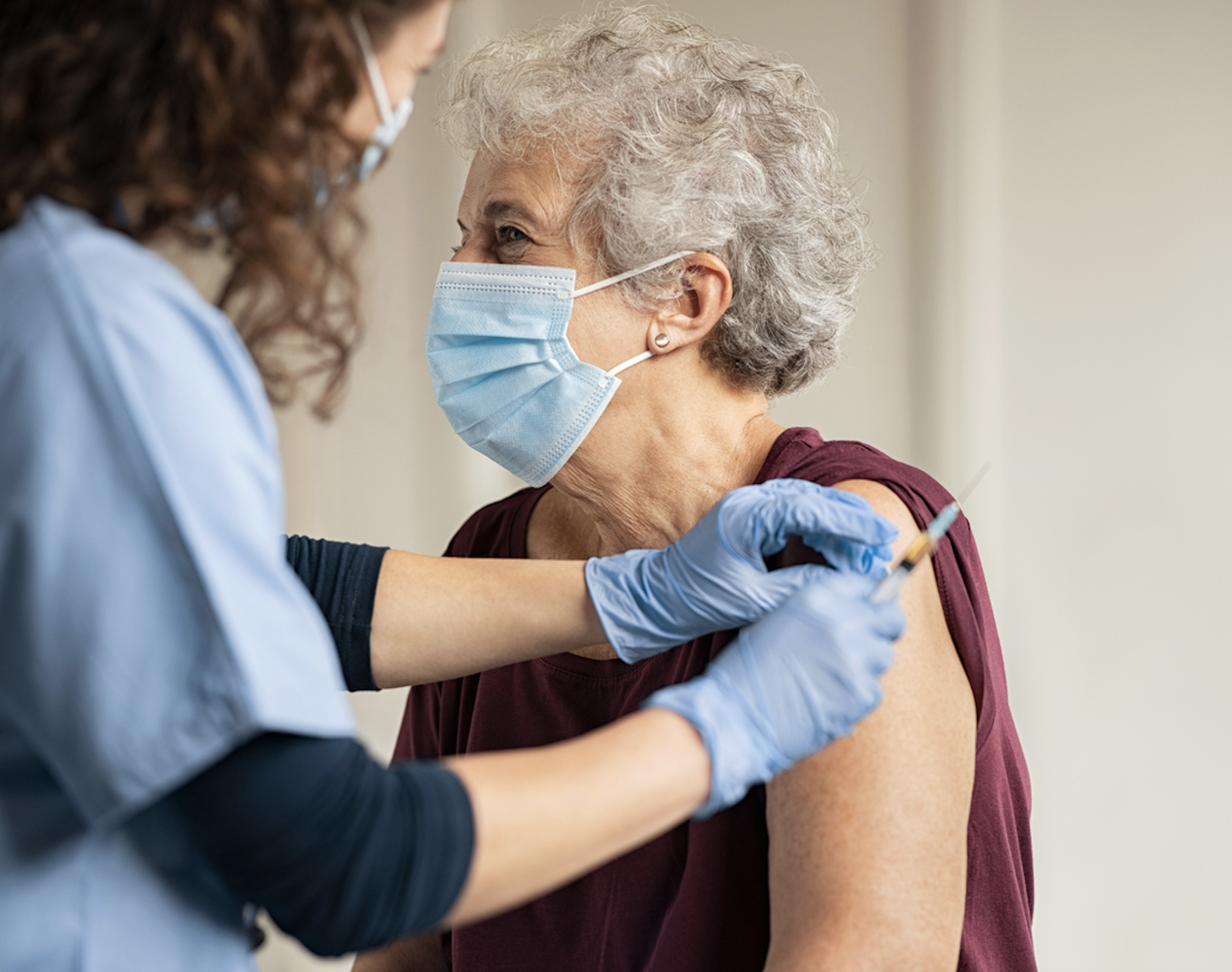A Fair Shot: It’s Time For Another COVID Booster
September 20, 2023

As we foreshadowed in August, despite our best efforts to forget about COVID, it continues to be a threat to the health of many, especially if you have an underlying chronic disease, a compromised immune system or are at the beginning or later stages of life. In fact, the numbers of infected and hospitalized patients continue to rise in many areas of the country, and 2 regions of the country, including Texas, Arkansas, Iowa, and Missouri have among the highest number of positive test results. So, as predicted previously, a new COVID booster has now been approved by the FDA and the CDC has set out guidelines recommending that everyone over the age of 6 months receive the new COVID vaccine, which should help reduce infection rates, along with the more serious levels of hospitalization and death from the current variants circulating. Most patients who have been hospitalized this past year with COVID did not receive the previously available booster, and currently, the highest rate of hospitalization for COVID-19 is among those 75 and over (closely followed by those aged 65-74). So if your age is in that range, there’s a very good reason for you to make an appointment for the new vaccine. For a question-and-answer article with an expert on the new vaccine, check out this new (and free) post from The Washington Post.
A recent poll by Reuters/Ipsos found that about ½ of all Americans say they are very interested or somewhat interested in getting this new shot, which, if true, would be a higher rate than received the previously available shot, for which only about 1 in 6 US adults took the shot. Pfizer, one of the two companies approved by the FDA to offer this new vaccine (the other being Moderna) predicts that the acceptance rate will be much lower, at about 24% of the US population. That would be unsurprising, given the political divisiveness that surrounds the vaccine, but distressing nonetheless, as experts universally recommend this shot for those at risk, as well as those who are younger or healthier, who could expose older, more vulnerable loved ones. While the new vaccine won’t necessarily prevent you from becoming infected, it will significantly decrease your risk of serious illness and hospitalization, and there is also mounting evidence that the COVID-19 vaccine can lessen the likelihood that you will experience long COVID.
Moreover, as the virus has evolved to create new strains, it appears that new variants are more contagious and more easily passed from one to another. In fact, the current Omicron variant appears to have a much shorter time between infection and symptoms than previous variants, so it’s not uncommon to experience symptoms within 2-5 days after exposure, rather than up to 2 weeks which was experienced with previous variants. And, with quicker symptoms come more virus circulating, which means more spread of infection. In essence, as the virus continues to mutate, it becomes more contagious. So not only should you line up to get a new vaccine, but you may also want to re-introduce such protective measures as regular hand washing and the wearing of masks indoors if you are uncertain of your surroundings or the ventilation in the space. And you’ll want to make sure you have rapid home tests available (starting next week, the government will begin mailing free test kits to those who request them), as you’ll need a positive test result in order to avail yourself of the opportunity to take Paxlovid. There are times when you may feel certain you have COVID but your rapid test result is negative. That could be due to some underlying immunity you may still have or you may be testing yourself too soon. Rest assured that rapid tests can detect the new variants so if you test negative, it’s recommended you retest yourself within 48 hours. The CDC recommends you test yourself 5 days from the date of your first exposure, especially if you have symptoms, as rapid tests are more accurate in people who are symptomatic.
The new vaccine should be arriving in chain drug stores this week and in smaller drug stores and physician offices shortly if not already. CBS News did a recent survey to see who has the vaccine and who’s making appointments among the larger drug stores. It’s been reported that the rollout of the new vaccine has had some bumps (especially when it comes to billing and insurance) but most private and public insurance companies should cover the cost of the vaccine. While no one can guarantee that with this shot you still won’t get COVID but what experts can agree on is that with the shot, within a matter of a week or 2, you’ll have protection from the serious consequences of COVID for several months, thereby protecting yourself- and your vulnerable loved ones.







